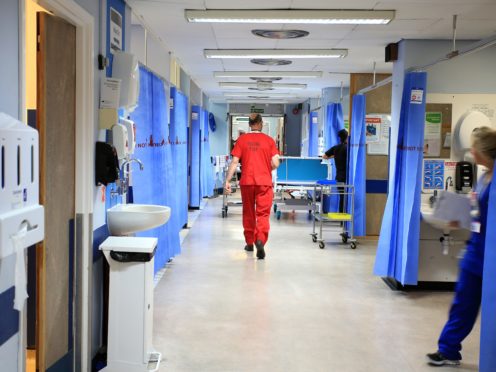More than 100,000 people with cancer ‘struggling to pay for basic essentials’
More than 100,000 people with cancer in the UK are struggling to pay for basic essentials due to the coronavirus pandemic, according to a charity.
Macmillan Cancer Support found that 4% of those with cancer are struggling to cover costs such as food, bills, rent or mortgage as a result of Covid-19.
Seven in 10 (70%) people with cancer who are struggling with basic living cost expenses during the pandemic have experienced stress, anxiety or depression, the charity found.
It said nearly one in four (24%) of this group have experienced suicidal thoughts in recent months.
They are eight times as likely to have had suicidal thoughts than people with cancer who are not struggling to pay these costs (3%), the research found.
Day in and day out, we speak to people who are worried about starting their cancer treatment because they just don’t know how they will pay their bills or put food on the table
Steven McIntosh, Macmillan Cancer Support
The findings were made following a YouGov survey of more than 2,900 adults in December who had received a previous cancer diagnosis.
With around three million people in the UK living with cancer, the charity estimated from the survey findings that more than 100,000 people with cancer are struggling to pay for the basics.
Ahead of the Budget on March 3, Macmillan is urging the Government to provide “much-needed certainty” and make the £20 increase in Universal Credit payments permanent.
It found 16% of people with cancer, equating to around half a million people across the UK, have taken a financial hit from the pandemic.
Macmillan highlighted the case of 49-year-old mother Judith Neptial, from London, who is living with Stage 4 bile duct cancer.
She said: “The £20 per week Universal Credit increase I receive goes towards the travelling costs I incur for medical appointments. The money is important now more than ever before as it helps me avoid public transport during the pandemic.”
Steven McIntosh, director of advocacy and communications at Macmillan Cancer Support, said: “Even pre-pandemic we know that many people with cancer who rely on benefits are struggling to get by. Day in and day out, we speak to people who are worried about starting their cancer treatment because they just don’t know how they will pay their bills or put food on the table.
“The impact of Covid-19 has revealed the need to ensure vital support for those who need it most is not cut back. It’s critical that the Government make the £20 per week Universal Credit increase permanent and extend this increase to legacy benefits. If they don’t choose to act now, there is a real risk that people struggling most with the costs of cancer will be left out in the cold.”
Paul Spencer, policy and campaigns manager at Mind, said that as a “bare minimum” the £20 a week increase to Universal Credit must be made permanent – and the increase extended “to the thousands of people still receiving older disability benefits, so people can afford to live and get by”.
As part of a #KeepTheLifeline campaign by Joseph Rowntree Foundation, Macmillan, alongside 100 other bodies, has signed a letter asking for the £20 Universal Credit uplift to be made permanent.
Source: Evening Express. by Press Association
Support families fighting financial toxicity of cancer – here
